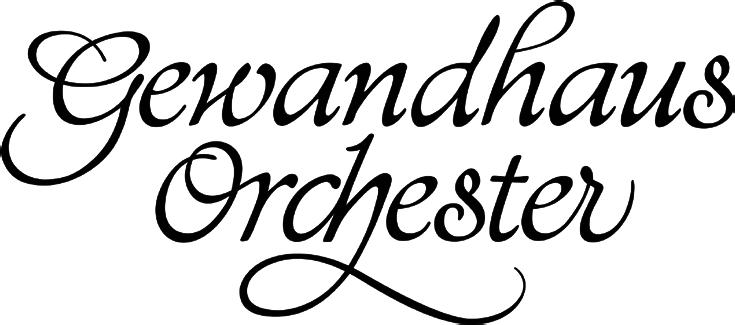MILCH-SHERIFF
The Eternal Stranger
A Monodrama for Actor and Orchestra
Score


A Monodrama for Actor and Orchestra
Score

A Monodrama for Actor and Orchestra
Text: Joshua Sobol (2019)
to Omer Meir Wellber
Commissioned by:
Gewandhaus zu Leipzig

Teatro Massimo di Palermo

BBC Radio 3

The work was commissioned for the occasion of 250 years to Beethoven, initiated by Israeli conductor Omer Meir Wellber, to whom this work is also dedicated.
It all started with Beethoven’s surprising and relatively unknown dream about which he wrote to his friend and publisher Tobias Haslinger on September 10, 1821.
This dream deals with a very long journey that he undertook, “as far even as Syria, as far even as India, as far even as Arabia” and finally he arrives in Jerusalem. There, he experiences some kind of religious experience and his friend Tobias appears. Beethoven describes a musical Canon he heard in this dream and includes the Canon in his letter to Tobias, even using his friend’s name as lyrics to the music *). This dream inspired the Israeli playwright and author Joshua Sobol to write the text that inspired me to compose The Eternal Stranger
This work is about a stranger, a refugee or any other person who finds himself in a hostile environment with no legitimate reason to be rejected but the fact that he or she is different, looks different, moves different, speaks differently.
But the stranger is a human being who has the same desires as every other human being. Beethoven’s dream enabled me to use vast musical connotations from my home country of Israel, and the sounds of my childhood – a mixture of Arabic music, Jewish music of all kinds (eastern and western) as well as the old European world.
Beethoven’s Canon makes an appearance in the piece, especially in the first part, modified in various ways. It is mixed by middle-eastern sounds into two completely different worlds that meet but perhaps fail to connect at all.
*) Canon “O Tobias!”, WoO 182
Ella Milch-Sheriff, October 2019
First performances:
(German version)
20, 21 & 23 February 2020, Gewandhaus zu Leipzig Gewandhausorchester, Conductor: Omer Meir Wellber, Actor: Eli Danker
(English version)
5, 6 & 7 January 2023, Symphony Hall, Boston (MA) Boston Symphony Orchestra, Conductor: Omer Meir Wellber, Actor: Eli Danker
A man is observing people in a foreign place.
On a shore where a wave from the stormy ocean tossed him, seeking to grasp the ways of the people there.
The masters of the land. Masters of the land. Masters of the land!
Imitating their gestures, and their facial expressions, the gaze that in their eyes, piercing and cold.
A razor-sharp and feline stare; razor-sharp (razor-sharp) feline stare (feline stare)
feline stare.
They take him for a misanthrope.
He can see it by the looks in their eyes.
I am not a misanthrope!
On the contrary! I love people!
I also love animals, plants and the woods, plants and the woods, all of the nature.
I love the light of the sun and it`s warmth.
I love the shadows of the foliage... dense.
I love the breeze that plays in the leaves.
I love the water, I love the wind,
I love and I love, I love and I love,
I love, I love, I love and I love.
But as strong as my love is, from your hatred it saves me not.
You lived in a silenced life, had no other soul in the world that you really could talk to.
Not of a joy, nor pain, neither sorrow.
Not of creativity, nor fear of a failure.
No banalic every day chit-chat:
“Do tell how was your last night sleeping, what dream did you have and tonight what you’re planning?”
Just a conversation, sharing any thoughts with some other human being.
The language of the people around you is the whispering of insects in grass, the sigh of the trees in the wind, the roaring of waves in the sea, the bleating of cattle from afar.
My mother’s language is buried in me. Her voice in quietude is calling to me:
(in Arabic, Syrian dialect)
Ibni! (My son!)
Wen inti? (Where are you?)
Wen inti ya ibni? (Where are you my son?)
Ibni alkhabib. (My beloved son.)
She calls to me from within me, as if from fallow earth. Flowers of beauty echo in the wind, voices of people lost in a scriptless-language.
(singing in Arabic, Syrian dialect)
Bilurh’at bidun kalimat (In a wordless language) karwi shauwq alqalb (he recounts the hearts) lil aswat alati akhabuha. (for the voices he loved.)
And his hand outstrechted to grasp something that is breathing, alive and warm. His hand returned empty to him.
Where the language of words into dark is fading, body, its silence is breaking, voice of speaking is breaking, body, speaks its own language. Eyes are drenching in tears, bones are setting on fire, blood is driving through veins, making the limbs dancing to rhythm of heart-beating pulse. Beat the beats in its temples, closing their eyes that are wistful, letting the dead people be resurrect in a dream. A dream! Gives every one of them their voice back, a voice that with a joy is exploding!
(English or Arabic)
You alone / ‘ant wahid in the darkest nights, you were my star.
You alone / ‘ant wahid, you were my only light in this life, in a godless world.
A man is observing people...
Piccolo
Flauti I/II
Oboi I/II
Corno inglese
Clarinetti (B -) I/II (II. anche Clarinetto basso)
Fagotti I/II
Corni (F) I/II
Trombe (C) I/II
Timpani
Percussion (1 player):
Bass Drum, Darbuka (or other similar instrument), Glockenspiel, Whip, Guiro, Cymbal, Temple Blocks, Triangle
Violini I
Violini II
Viole
Violoncelli
Contrabbassi
Duration: c. 18’30’’

For more than 200 years, Edition Peters has been synonymous with excellence in classical music publishing. Established in 1800 with the keyboard works of J. S. Bach, by 1802 the company had acquired Beethoven’s First Symphony. In the years following, an active publishing policy enabled the company to expand its catalogue with new works by composers such as Brahms, Grieg and Liszt, followed in the 20th century by Richard Strauss, Arnold Schoenberg and John Cage.
Today, with its offices in Leipzig, London and New York publishing the work of living composers from around the world, Edition Peters maintains its role as a champion of new music. At the same time, the company’s historic and educational catalogues continue to be developed with awardwinning critical and pedagogical editions.
Seit über 200 Jahren steht die Edition Peters für höchste Qualität im Bereich klassischer Notenausgaben. Gegründet im Jahr 1800, begann der Verlag seine Tätigkeit mit der Herausgabe von Bachs Musik für Tasteninstrumente. Schon 1802 kamen die Rechte an Beethovens erster Sinfonie hinzu. In der Folgezeit wuchs der Katalog um neue Werke von Komponisten wie Brahms, Grieg und Liszt sowie – im 20. Jahrhundert – Richard Strauss, Arnold Schönberg und John Cage.
Als Verleger zahlreicher zeitgenössischer Komponisten aus aller Welt ist die Edition Peters mit ihren Standorten Leipzig, London und New York auch weiterhin Anwalt neuer Musik. Zugleich wird das Verlagsprogramm im klassischen wie im pädagogischen Bereich kontinuierlich durch vielfach preisgekrönte Ausgaben erweitert.